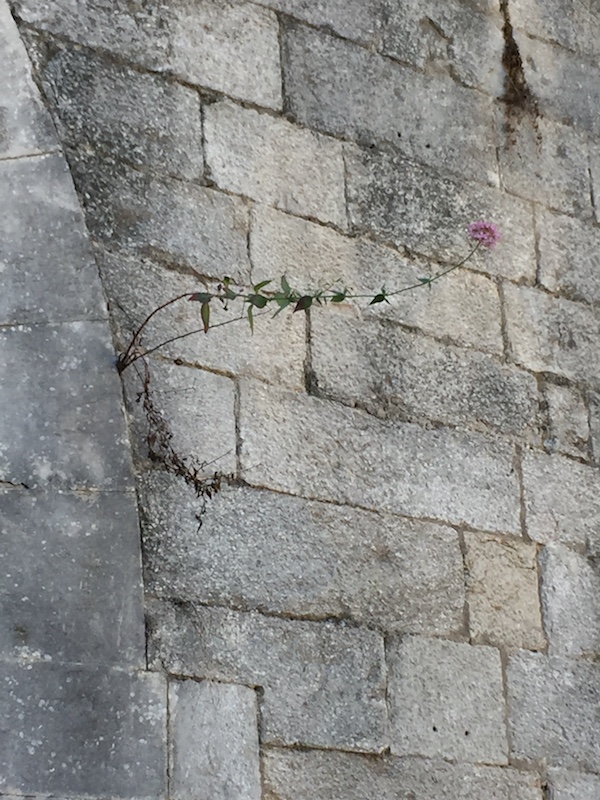In this morning’ daily office, we hear these petitions and hopes from Psalm 71:
1 In you, O LORD, have I taken refuge; *
let me never be ashamed.
2 In your righteousness, deliver me and set me free; *
incline your ear to me and save me.
3 Be my strong rock, a castle to keep me safe; *
you are my crag and my stronghold.
4 Deliver me, my God, from the hand of the wicked, *
from the clutches of the evildoer and the oppressor.
5 For you are my hope, O Lord GOD, *
my confidence since I was young.
6 I have been sustained by you ever since I was born;
from my mother’s womb you have been my strength; *
my praise shall be always of you.
There have been many times when I have read these words aloud over beloved ones lying sick, at home or in hospital rooms. But this week they had new resonance for me. Today we hear those words just after the close of International Nurses Week, which runs every year from May 8-12. This year, International Nurses Week ends on the 200th anniversary of the birth of Florence Nightingale, the great pioneer whose dedication and example not only helped elevate the field of nursing in the western imagination but also who helped professionalize the practice of modern nursing and public sanitation.
Ms. Nightingale’s bravery in being willing to be deployed to the heart of the conflict in the Crimean War of 1853-1856 brought her large-scale adulation. Yet her emphasis on nursing not only as an emphasis on sanitation but on caring for the emotional and spiritual needs of her patients is what made her work and example truly legendary. Her tireless dedication to her patients gave her the nickname “the Angel of the Crimea,” as she not only revolutionized the standards of cleanliness in hospitals, but even organized libraries and classrooms for patients who were not simply abandoned to lie in their own misery under her and her nurses’ care.
In this time of pandemic, nurses and other front-line workers are likewise being lauded as heroes for their bravery and steadfastness in tending to the ill, especially those infected with COVID-19, and rightly so. But, as we are reminded in reports from the front line such as this one from PBS, nurses are often the mainstays of spiritual care at the end of life, more now than ever when family, chaplains, and clergy are usually forbidden to be physically present with the ill. It is their resolute presence and faithfulness that breaks through our own feelings of helplessness and bleakness in the face of this worldwide crisis- fearless even when they lack the protective gear they need.
As I personally witnessed a few weeks ago when one of my own parishioners lay gravely ill in an isolated ICU, nurses are often ones holding phones and tablets up to patients’ ears so that their loved ones can speak to them, sometimes for the final time. It is nurses and nurses’ aides who hold patient’s hands even when all treatments have been exhausted, and who stand in the breach for all of us who cannot safely attend to our loved ones in hospitals or nursing care facilities. It is nurses who read emailed cards, prayers, and reassurances from family and friends to the ill lying silent on their ventilators, and it is nurses who personally bear the grief engendered by the spiritual and emotional toil of confronting wave upon wave of desperately ill patients, some of whom had been vigorous and full of life mere days ago.
We call them heroes, and we are right to do so. But we also are called to bear witness to their very real resilience as spiritual warriors, of their strength in embodying that holy love-in-action and fierce protectiveness enshrined in psalms like Psalm 71, and in accepting the responsibility we have to be willing to support their embodiment of the compassion and empathy of a God who accompanies us in all our anxieties and griefs.
May we make these words not just a prayer of supplication and lament for the ill, but of personal thanksgiving for the caregivers. May we be inspired by their bravery to demand better support and resources for medical staff and patients, breaking down edifices that leverage scarcity for profit in an unholy strategy that in times like these results in avoidable suffering and expanded risk to the most vulnerable and exposed among us. May we honor their sacrifice by doing all that we can to flatten the curve of infection as an act of hopefulness and defiance in the face of fear, in imitation of their own rejection of the concept of “acceptable losses” being put forward in some quarters.
As we pray these words today, especially in this time of pandemic, may we give thanks for those who serve as spiritual warriors and comforters in the valley of the shadow of death, embodying the indomitable love and steadfastness of God in human form. Their steadfastness affirms the power of life and love in testimony greater than any found in any pulpit, sanctuary, or chancel. It is these nurses and medical staff who make present and real the steadfast love of God drawn from their own inner reserves of empathy and fortitude likewise implanted in them by God for times such as these, holding us all safe upon the rock of resilience.
The Rev. Leslie Scoopmire is a writer, musician, and a priest in the Diocese of Missouri. She is priest-in-charge of St. Martin’s Episcopal Church in Ellisville, MO. She posts daily prayers at her blog Abiding In Hope, and collects spiritual writings and images at Poems, Psalms, and Prayers.

